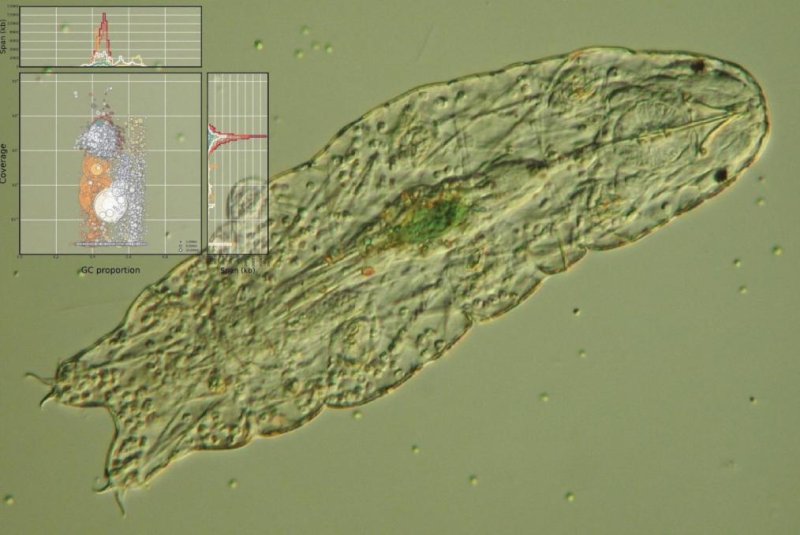EDINBURGH, Scotland, March 28 (UPI) -- A 2015 study found as much as 17 percent of the tardigrade's genome was comprised of foreign DNA, but new research suggest those foreign fragments were the result of bacterial contamination.
The DNA of tardigrades, or water bears, is relatively pure, scientists at the University of Edinburgh say.















